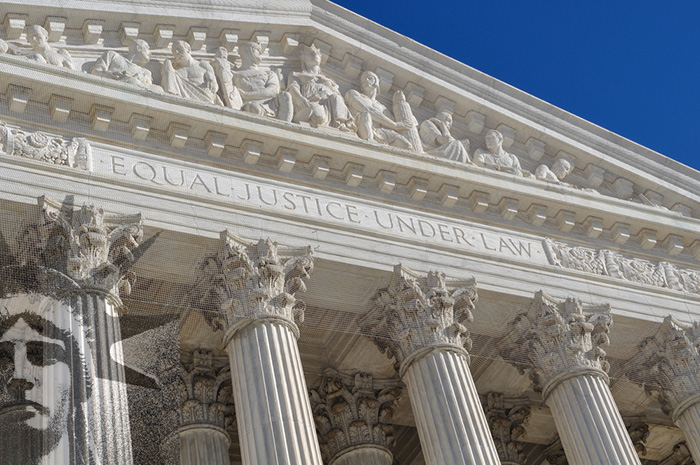
[dc]O[/dc]n May 8, 2017, Notre Dame Law School professor Amy Coney Barrett was nominated by President Donald Trump to serve as a judge on the United States Court of Appeals for the Seventh Circuit.
Barrett, a devout Catholic and former clerk for conservative Supreme Court Justice Antonin Scalia, was questioned on September 6, 2017, by members of the U.S. Senate Judiciary Committee.
At the hearing, California Senator Diane Feinstein expressed concern that Barrett’s Catholic beliefs would influence her judicial position on the topic of abortion, lecturing Barrett about the difference between belief and law. “Dogma and law are two different things. And I think whatever a religion is, it has its own dogma. The law is totally different. And I think in your case, professor, when you read your speeches, the conclusion one draws is that the dogma lives loudly within you,” Feinstein said.
Earlier, Barrett had said that “It’s never appropriate for a judge to impose that judge’s personal convictions, whether they arise from faith or anywhere else, on the law.”
Feinstein drew fire from conservatives with her line of questioning and in response to an inquiry from the National Review, her office produced statements that Barrett had made during her work as a professor at Notre Dame, a Catholic school. For instance, in 2006 she had told the graduating class that, ““Your legal career is but a means to an end, and . . . that end is building the kingdom of God. . . . [I]f you can keep in mind that your fundamental purpose in life is not to be a lawyer, but to know, love, and serve God, you truly will be a different kind of lawyer.”
Feinstein’s office also produced a statement from a December 2015 article Barrett had written for the alumni association. “’Life is about more than the sum of our own experiences, sorrows, and successes. It’s about the role we play in God’s ever-unfolding plan to redeem the world.’ She continued: ‘That sounds lofty, but it’s about taking the long view. Do we see success through the eyes of our contemporaries, or through the eyes of God? Do we focus only on what God does for us, or also on what God can do for others through us.’”
Nothing in the statements from Feinstein’s office seemed to be outside the normal range of dialogue at faith-based law schools and the fact that they being used to potentially block a judicial nominee could create a chilling effect among those who might seek a Federal judgeship even if they intend to apply the law as written.
While the Catholic position against abortion concerned some Democrats, Republican Senator Ted Cruz, a Southern Baptist, seemed concerned about the Catholic position against the death penalty. “I’ve read some of what you’ve written on Catholic judges in capital cases and, in particular, as I understand it, you argued that Catholic judges are morally precluded from enforcing the death penalty . . . please explain your views on that because that obviously is of relevance to the job for which you have been nominated.”
Two days later, the President of the University of Notre Dame, John Jenkins, wrote to Feinstein expressing concern about the line of questioning. Jenkins concluded, “It is chilling to hear from a United States Senator that this might now disqualify someone from servingas a federal judge. I ask you and your colleagues to respect those in whom “dogma lives loudly”—which is a condition we call faith. For the attempt to live such faith while one upholds the law should command respect, not evoke concern.”
Article VI, Section 3 of the United States Constitution states that “no religious test shall ever be required as a qualification to any office or public trust under the United States.” This applies equally whether concerns come from the right, the left, or in the case of Professor Barrett, both.

